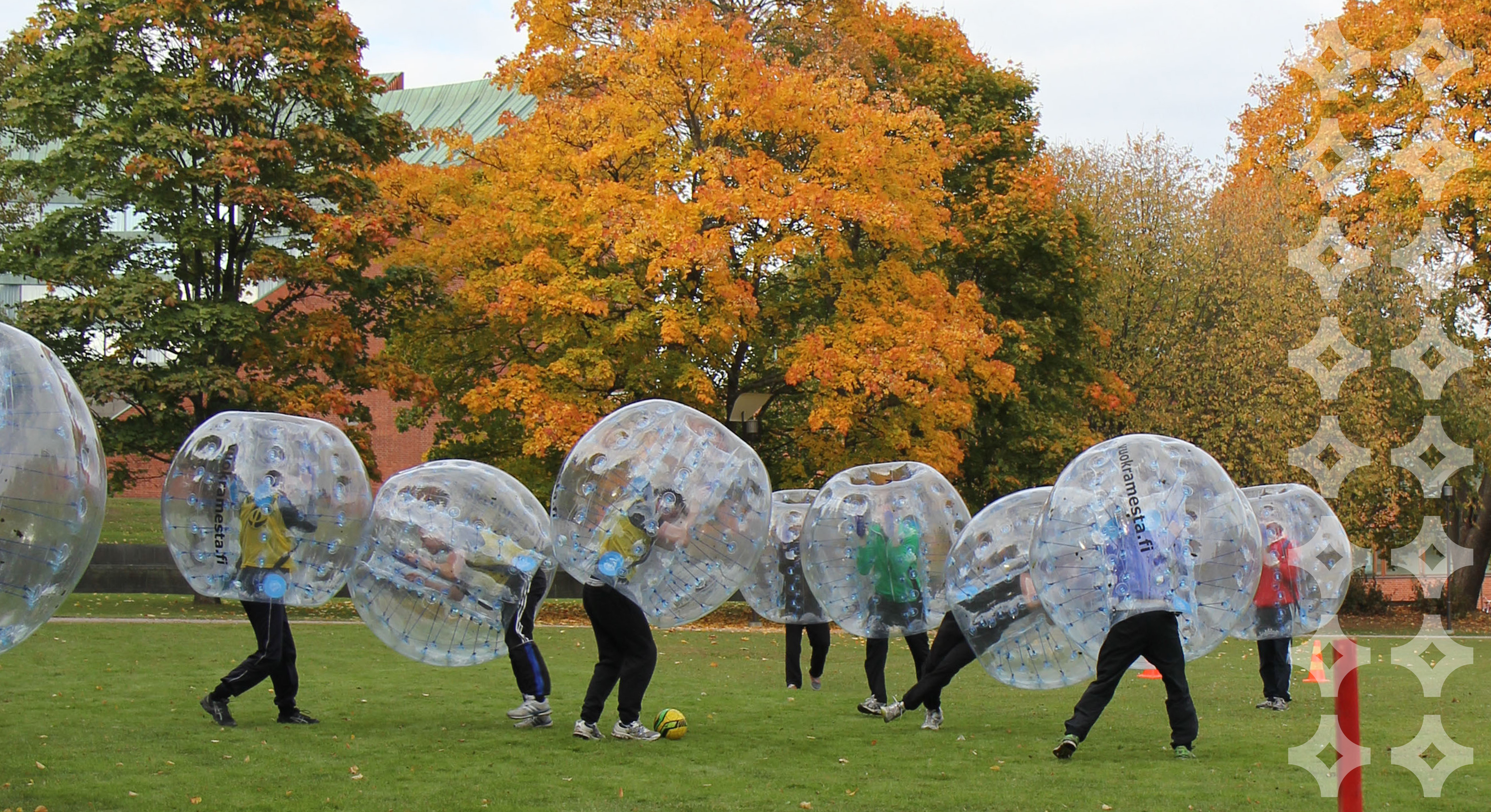Wellbeing in association operations

Exhaustion and depression
Association operations are fun, inspiring and useful for both the entire community and the operator. However, if one person is left with too much work to do, they may face exhaustion. It may be difficult to identify the signs of excessive fatigue, as a person on the edge rarely acknowledges the situation or admits to it to others. It may also be difficult to interfere with another person’s exhaustion. It is, however, useful to discuss the topic with the person in question as soon as you start to worry about their behaviour and coping. As a solution to exhaustion, you can think about changing the work distribution so that some of the exhausted person’s duties are assigned to others, for example. The group’s wellbeing can be assisted by, for example, invigorating outings and an open conversational culture in which there is no shame in asking for help.
It is also good for the associations’ actives to consider what kinds of values the association wants to promote. Is a full calendar something to brag about? By way of its operations, the association can emphasise the importance of students’ coping by not idolising excessive competition and performance. It is good to observe the distribution of duties and whether someone has slightly too much on their plate. In an association, it is good to thank everyone who contributes even a little to its operations and to create an operational culture in which it is acceptable to admit to having too much to do.
In addition to exhaustion, it is also good to pay attention to other kinds of warning signs about an operator’s mental health being tested. If you notice signs of depression in yourself or others, seek or encourage them to seek help. If you think you may be depressed yourself, you can also chart the situation using online tests, for example.
Help for exhaustion and mental health challenges is available in many places. Help can be sought, for example, from the FSHS or Aalto chaplains, regardless of your belief system. Nyyti has an extensive collection of materials for seeking help in different situations (in Finnish). When the cause of exhaustion is study-related problems, you can contact the Aalto study psychologists.
Substance abuse
The use of alcohol is often seen as an integral part of student culture. In recent years, however, the number of clean young people has risen, and many new university students do not drink. It is good for associations to also pay attention to how their own culture reacts to persons using or not using intoxicants. It would be good for associations to organise events that do not revolve around alcohol and to ensure that the refreshments also include nice non-alcoholic drinks. In a way, alcohol is taken for granted in many events without anyone having really thought about it. It is good to observe how central the role of alcohol really is in the operations. Would some events also work without any intoxicants at all?
Alcohol is also connected to the exhaustion mentioned in the previous section: associations can think about whether their culture features the damaging “work hard, play hard” characteristics, or whether it is thought that networking and getting ahead in the association requires late nights of celebrating and drinking excessively.
If an individual’s substance abuse becomes a problem, help is available, for example, from the FSHS. The FSHS website also features links to other parties whom to contact for help. You can also bring up a fellow student’s substance abuse with the person themselves if you notice their situation getting out of hand.